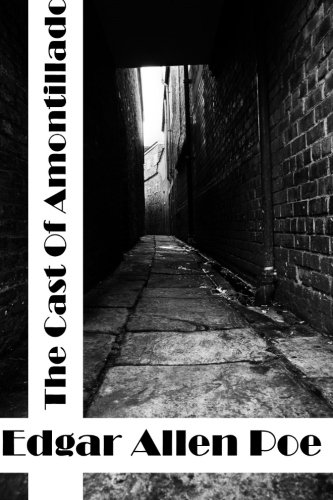What do you think?
Rate this book


24 pages, Paperback
First published November 1, 1846

















"I must not only punish but punish with impunity”Have you ever thought how revenge could be at its worst? Well, Poe with his dark ingenuity gives us a splendid lesson. A scary glimpse to the idea of revenge carried with meticulous precision. Poe presents us a placid and dark story that is deception at its finest.
“The thousand injuries of Fortunato I had borne as I best could, but when he ventured upon insult I vowed revenge. You, who so well know the nature of my soul, will not suppose, however, that gave utterance to a threat. At length I would be avenged; this was a point definitely, settled --but the very definitiveness with which it was resolved precluded the idea of risk.”Did Fortunato indeed insulted our narrator? For no explanation is given to the cause, the reader just hears the voice of the narrator and his suposed humiliation. Would you simply take an insult, or avenge yourself? As I was reading along, I wondered: is this only a threat, a scare or will the narrator only be satisfied with the inexorable demise? But there are omens, if we wish to recognize them.
“A wrong is unredressed when retribution overtakes its redresser. It is equally unredressed when the avenger fails to make himself felt as such to him who has done the wrong.”First I read calmly until suddenly the dark climate hit me, and I wondered: how did it all comes to that? What an atmosphere of foreboding Poe is able to conjure with so few words. The scary image of death in progress.
“I continued, as was my wont, to smile in his face, and he did not perceive that my smile now was at the thought of his immolation.”The story is placid and dark as starless night sky. Deception at its finest interpretation. Something you will not see in any other story, as far as I can remember. The image of the impetus of death unfolding, a gradual build up to the very end.






